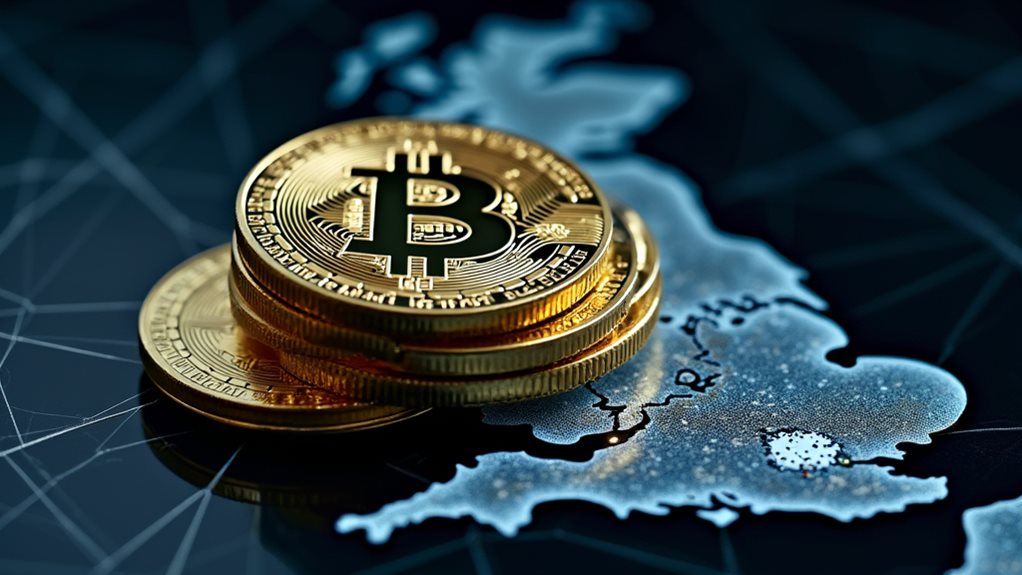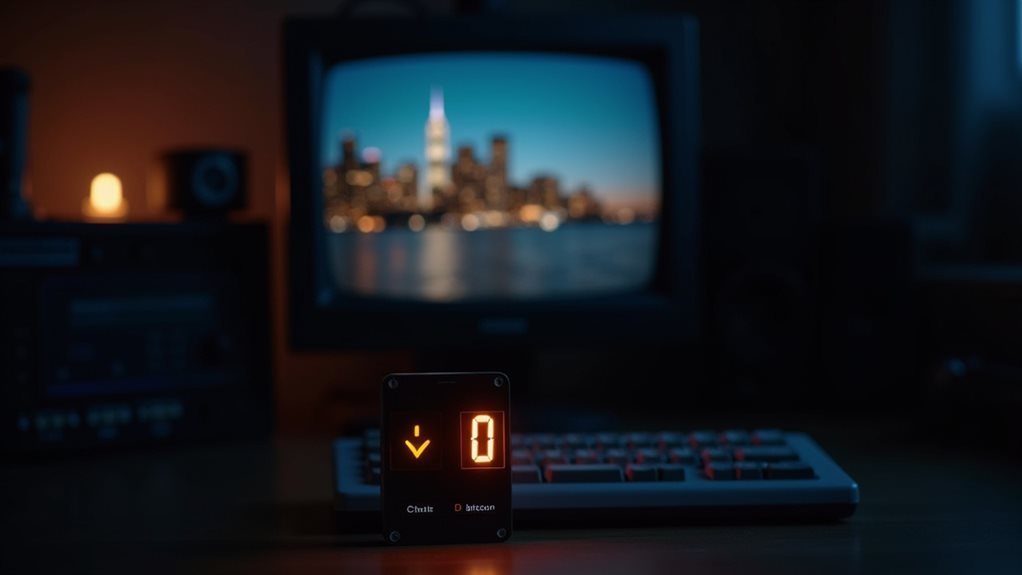BTC stands for Bitcoin, the original cryptocurrency launched in 2009 by the mysterious Satoshi Nakamoto. This digital currency operates without banks or middlemen, using blockchain technology to track every transaction in a decentralized network. Bitcoin emerged from the ashes of the 2008 financial crisis as a trustless system for sending value globally. Despite critics calling it a fad, Bitcoin has transformed into a serious financial asset. There's way more to this digital revolution than just a three-letter acronym.

Cryptocurrency newcomers often stumble over three simple letters: BTC. It's Bitcoin – the granddaddy of all digital currencies. Born in 2009 from a mysterious figure known as Satoshi Nakamoto, Bitcoin emerged as the first decentralized digital currency that told banks and governments to take a hike. No middlemen needed, thank you very much.
Bitcoin operates on something called blockchain technology, which is fundamentally a fancy digital ledger that keeps track of every single transaction. Think of it as a really intense accountant that never sleeps and can't be bribed. The system works through a process called mining, where computers solve complex mathematical puzzles to verify transactions. Users need private keys to prove ownership and make transactions. Yes, computers doing math are literally creating money – welcome to the future. After the 2008 financial crisis, Bitcoin was launched as a trustless financial system.
Blockchain: the world's most obsessive bookkeeper, powered by computers solving puzzles to make digital money real.
The whole thing runs on a decentralized network where anyone can participate by running a node. No central authority calls the shots. That's pretty revolutionary, considering how tightly controlled traditional money is. The network maintains security through SHA-256 hash calculations that link each block to the previous one. Modern innovations like Wrapped Bitcoin have even made it possible to use Bitcoin's value in Ethereum-based DeFi platforms.
And here's the kicker: there will only ever be 21 million Bitcoins. Ever. Period. No printing extra money when things get tight.
Bitcoin's first real-world transaction was hilariously mundane – someone bought pizza with it. Now, that same amount of Bitcoin would buy a fleet of luxury cars. Talk about buyer's remorse. The currency has gone from being internet magic money to something that actual countries recognize as legal tender. El Salvador even made it official currency, though not everyone thinks that was the smartest move.
The system isn't perfect, though. Bitcoin mining consumes enough energy to power small countries, making environmentalists lose sleep. The price swings so wildly that it could give a roller coaster designer vertigo. And regulators worldwide can't decide if they want to embrace it or ban it entirely.
Despite these challenges, Bitcoin has sparked a financial revolution. It's inspired hundreds of other cryptocurrencies and changed how people think about money. More than 750 developers have contributed to its code, making it a truly collaborative project.
Whether used for investments, purchases, or simply as a digital store of value, Bitcoin has proven it's not just some internet fad. It's transformed from a cryptographic experiment into a serious financial asset that banks, businesses, and governments can't ignore – even if they wanted to.
Frequently Asked Questions
How Do I Buy and Sell Bitcoin Safely?
Buying and selling Bitcoin safely requires using reputable centralized exchanges with solid security measures.
Coinbase and other major platforms offer straightforward processes – just create an account, verify identity, and connect a bank account.
Cold wallets provide extra security for storage.
Smart traders use secure internet connections and enable two-factor authentication.
The blockchain handles transaction verification, but watch out – prices swing wildly, and scammers lurk everywhere.
What Is the Minimum Amount of Bitcoin I Can Purchase?
The minimum Bitcoin purchase varies by exchange. Coinbase lets users start with just $2 worth, while bitFlyer requires 0.00001 BTC minimum.
Thanks to satoshis (Bitcoin's smallest unit at 0.00000001 BTC), buying tiny fractions is totally possible. Most exchanges keep minimums low to attract new investors.
Peer-to-peer platforms and Bitcoin ATMs also offer flexible amounts.
Bottom line: you don't need much cash to get started with Bitcoin.
Which Countries Have Banned Bitcoin Transactions?
Several countries have completely banned Bitcoin transactions. China made headlines in 2021 with its total crypto ban.
Nepal, Afghanistan, Bangladesh, and Morocco also enforce strict prohibitions.
Other nations have partial restrictions – India's moving toward a ban, Egypt requires special licenses, and Iran only allows domestic mining.
Turkey and Vietnam? They're cool with trading but won't let you buy your coffee with crypto.
North Macedonia stands alone in Europe with a total ban.
Can Bitcoin Transactions Be Traced Back to Me?
Yes, Bitcoin transactions can be traced. While Bitcoin offers pseudo-anonymity, every transaction leaves a permanent trail on the public blockchain.
Law enforcement and forensic analysts use sophisticated tools to follow these digital breadcrumbs. Mixing services and privacy techniques exist, but they're not foolproof.
Think of it like writing with invisible ink – seems hidden, but the right tools make everything visible. The blockchain never forgets, and those transactions are there forever.
Why Does Bitcoin's Price Fluctuate so Much?
Bitcoin's price swings wildly due to several key factors.
Market sentiment changes fast – one tweet from a tech billionaire can send prices soaring or crashing. The 24/7 trading cycle never stops.
Add in speculation, limited supply, and zero government backing – it's a recipe for volatility.
Regulatory news, media coverage, and global events all push prices around.
Plus, crypto markets are still young compared to traditional ones.
Yeah, it's basically financial chaos.









